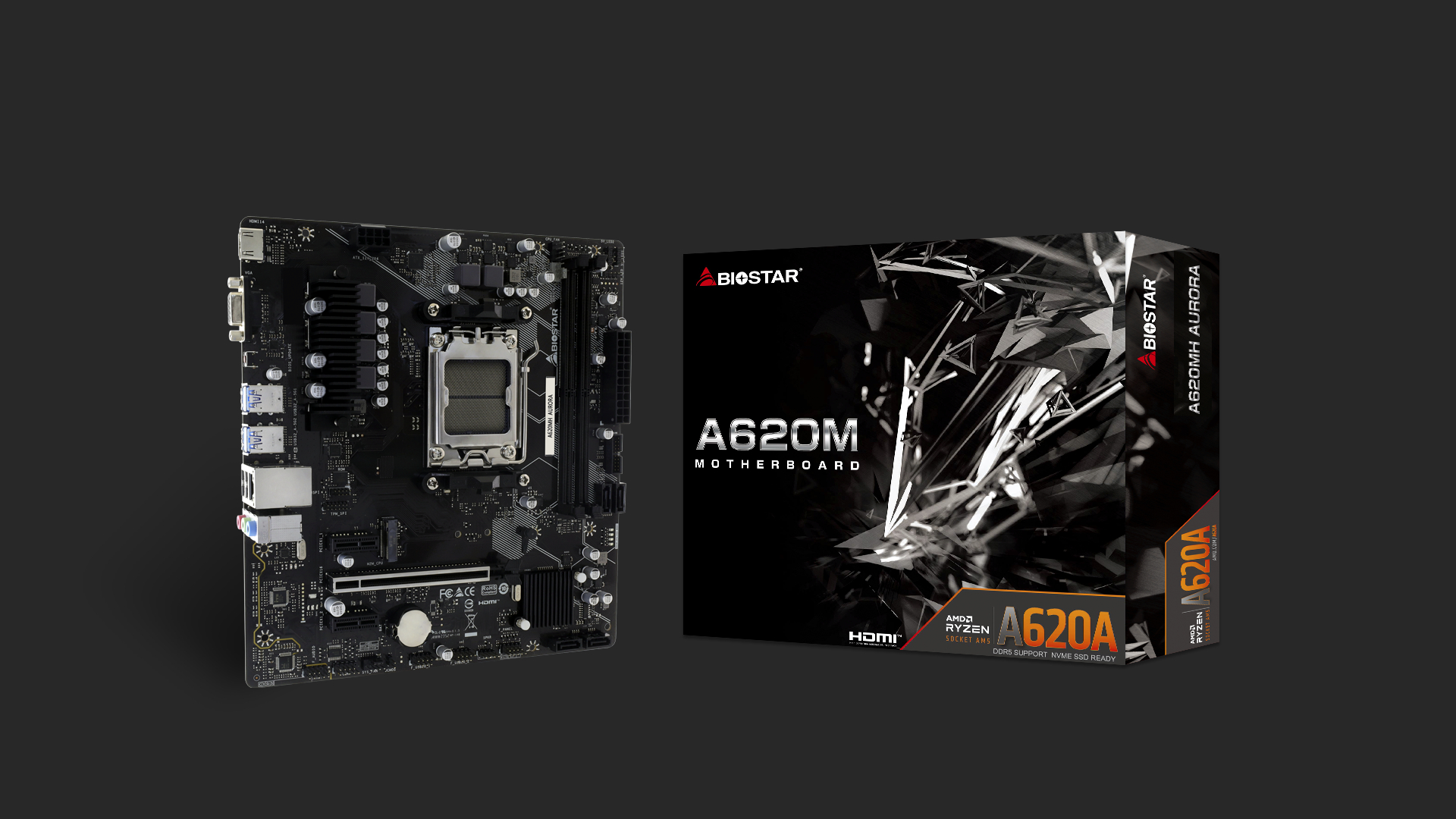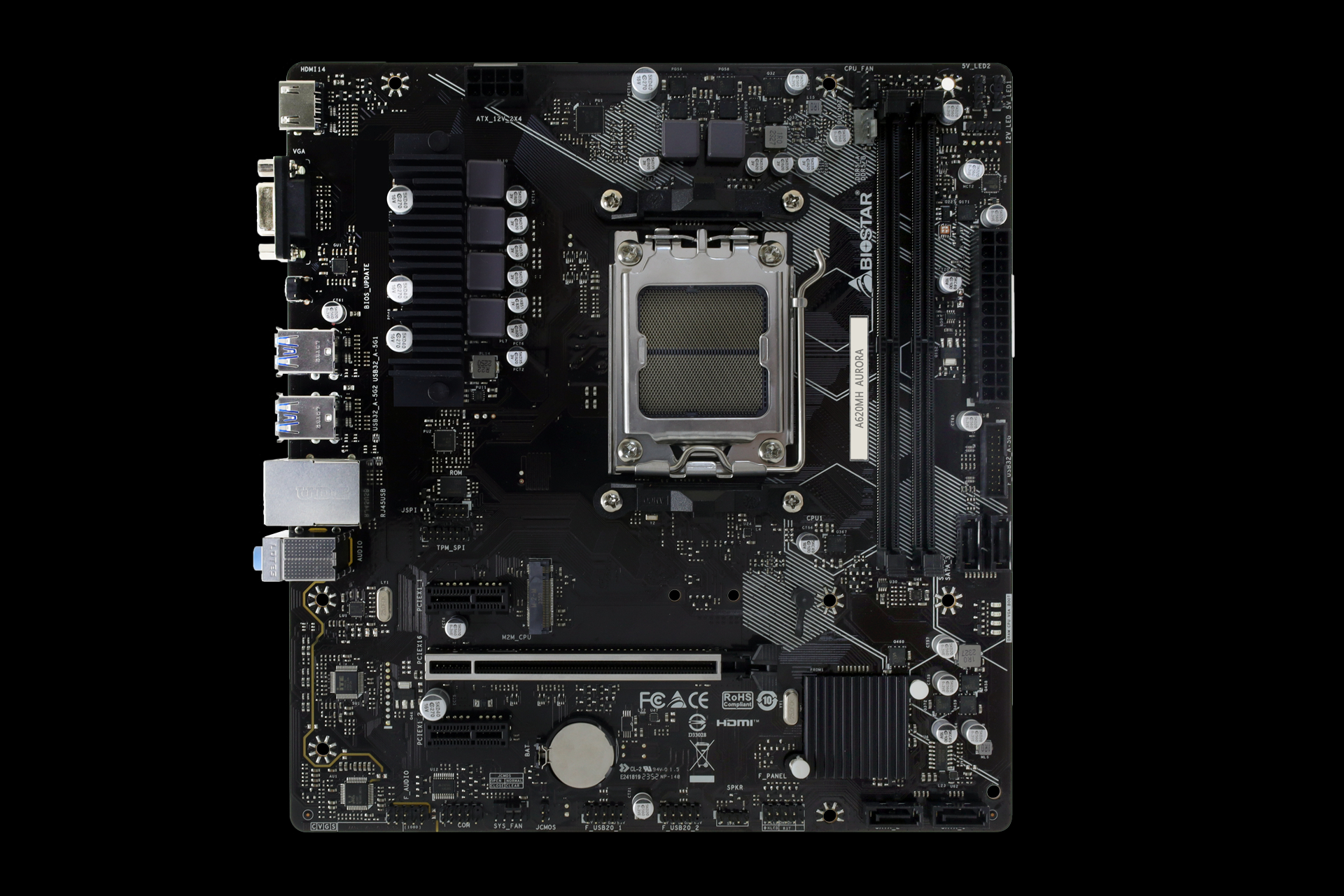
Biostar has revealed the A620MH Aurora, a budget AM5 motherboard with the credentials to rival the best motherboards. Curiously, there aren't any A620A motherboards around, so the A620MH Aurora is the first one of its kind to hit the market.
A620 and A620A are entry-level chipsets from the AMD 600-series family. These chipsets allow motherboard manufacturers to offer consumers an accessible upgrade path to the AM5 platform. The A620 chipset leverages the new Promontory 21 silicon, while the A620A chipset is based on the previous Promontory 19 silicon, presumably the same one that powers the B550 chipset. Therefore, A620A is essentially a relabeled B550. A620 and A620A are almost identical in terms of features. The key differentiator lies in the speed of the chipset uplink.
The chipset uplink is the interface that connects to the processor. The A620 chipset has a PCIe 4.0 x4 connection, whereas the A620A/B550 chipset sticks to a PCIe 3.0 x4 connection. PCIe 4.0 offers twice the performance of PCIe 3.0. Yes, there's a performance difference between A620 and A620A. However, it isn't noticeable in the real world unless many devices are connected to the chipset.
The A620MH Aurora is a microATX motherboard with a humble six-phase power delivery subsystem. Nonetheless, the motherboard supports Ryzen 7000, Ryzen 7000 X3D, and Ryzen 8000G processors up to 170W. There are only two DDR5 memory slots, but DDR5's capacity per module has improved to the point that it allows the A620MH Aurora to accommodate up to 96GB of memory officially. However, upcoming 64GB memory modules should increase the total to 128GB.

Despite being an A620A motherboard, the A620MH Aurora offers sufficient storage options. You receive four SATA III ports and one M.2 2280 slot with a PCIe 4.0 x4 interface to use the best SSDs. The SATA III ports support RAID 0, 1, and 10 arrays.
The A620MH Aurora has one PCIe 4.0 x16 expansion slot wired to the AMD Ryzen processor. It operates at x16 but can drop to an x8/x8 mode. On the other hand, the A620A chipset provides two PCIe 3.0 x1 expansion slots for older devices.
The Ethernet and audio controllers are from Realtek. The RTL8111H enables a single Gigabit Ethernet port on the motherboard; meanwhile, the ALC897 audio codec provides 7.1-channel audio through the three 3.5mm audio connectors. The motherboard has one HDMI 1.4 port and one VGA port if you plan to use one of Zen 4's integrated graphics.
As for the USB layout, the rear panel houses four USB 3.2 Gen 1 ports and two USB 2.0 ports. You can expand the former and latter by two and four via the internal headers on the motherboard.
Biostar didn't share the pricing or availability for the A620MH Aurora. The motherboard hasn't arrived on U.S. soil yet; however, we suspect that it probably has a sub-$100 price tag, given the market that it targets.







